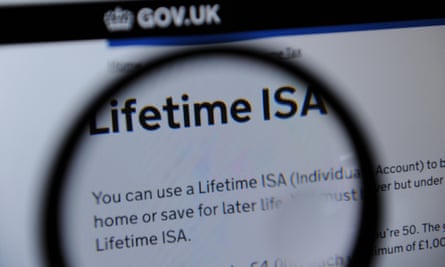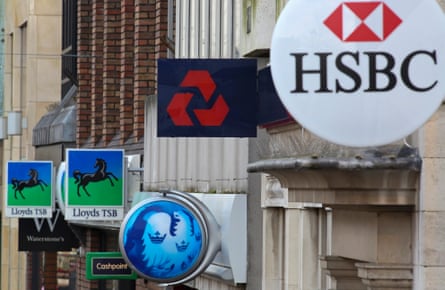
Pay off costly debts first
There is no point trying to save if you are burdened by costly debts.
The average easy access savings account offers less than 0.2% interest, while on some borrowing you could be paying in excess of 20%. Aim to pay off expensive credit card, store card or overdraft debts before you think about putting money aside.
Start a rainy-day fund
Everyone should aim to have some cash in an easily accessible savings account to provide a financial safety net if the worst happens.
Essential expenses should include items such as housing costs, money for food and important bills
“We all need robust savings to cope with the nasty surprises life tends to throw at us,” says Sarah Coles, a personal finance analyst at the investment firm Hargreaves Lansdown. “We should be working towards three to six months’ worth of essential expenses in an easy access account.”
Essential expenses should include items such as housing costs, money for food and important bills. Do not be put off by how much this comes to – anything you can put away towards it will help if things do go wrong.
Have a goal
Beyond rainy-day savings, you may want to put aside other cash – and having a purpose will motivate you. “Setting a goal and giving it a name can help keep you on track,” says Annabelle Williams, a personal finance specialist at the investment firm Nutmeg. “By attaching meaning to your savings goals, such as a new home, a specific trip, or big purchase, you’re more likely to stick to your savings habit.”
Make it a regular habit
 View image in fullscreenCould you do more with your savings? Photograph: Viktoria Rodriguez/Getty Images
View image in fullscreenCould you do more with your savings? Photograph: Viktoria Rodriguez/Getty Images
Regular savings accounts are a good option for those new to saving. You put aside money each month – usually via a standing order from your current account.
These accounts offer some of the best interest rates out there, although the maximum you can tuck away often isn’t that high.
If you have a NatWest current account, you can take advantage of its Digital Regular Saver account, which pays a market-leading 3% interest and is, it says, designed to help customers with little or no savings develop a savings habit and build financial capability.
However, you can only pay in up to £50 each month. TSB’s Monthly Saver pays 2% and lets you save between £25 and £125 a month – again, you need to have a current account with the bank to open one.
Most regular savings accounts run for a year, and the interest is paid at the end of the period. You will then need to shop around for a new account for your lump sum.
Get some help
For those on a low income, the government’s Help to Save account is definitely worth considering. It lets certain people on working tax credit, or receiving universal credit, get a bonus of 50p for every £1 they save over four years. You can put in between £1 and £50 each month, and the most you can earn in four years is £1,200 in bonus money. But paying into this account could affect some people’s eligibility for benefits and how much they get, so read the details carefully before you commit.
 View image in fullscreenYou can put away up to £4,000 each year until you are 50 in a lifetime Isa.
View image in fullscreenYou can put away up to £4,000 each year until you are 50 in a lifetime Isa.
Photograph: Louisa Svensson/Alamy
Then there’s the lifetime Isa, which lets people save for a property or retirement. You can put away up to £4,000 each year until you are 50, and the government will add a 25% bonus to your savings, up to a maximum of £1,000 a year. To open one you must be aged 18 to 39.
Round up your spending …
Several banks are making saving easier by getting you to do it whenever you pay for something.
Lloyds Bank has Save the Change. When you buy something with your debit card, if your account is in credit it will round up the amount spent to the nearest pound, and transfer the difference into a nominated Lloyds savings account. “If a purchase is £2.20, the bank will transfer 80p, which could see someone save £5.60 in a week if this is spent every day,” says Rachel Springall at the financial data provider Moneyfacts.
The digital bank Chase does the same and deposits the small change into a separate account where it will earn interest at 5% for 12 months.
… or round it down
Another technique is to log into your current account, look at the balance and mentally “round it down”, Williams says. “If you have £221.60 until payday, round it down to £210 and move £11.60 into savings. It all adds up over time.”
Use an app
Chip and Plum are just two of the apps that offer “auto-save” features. Every few days the tech does the maths and automatically transfers some of your money into another account, which little by little adds up.
Plum’s free option includes auto-saving, while Chip is changing its pricing in mid-January so that standard membership will be free.
 View image in fullscreenYou can use a money management app such as Plum to help make the most of your finances. Photograph: Postmodern Studio/Alamy
View image in fullscreenYou can use a money management app such as Plum to help make the most of your finances. Photograph: Postmodern Studio/Alamy
A budgeting app could also help. Springall suggests Money Dashboard, which automatically categorises spending into “buckets”, such as household bills and groceries – this lets you see what you can afford to save once the essentials are covered.
Another budgeting app to check out is Emma, which analyses transactions across accounts and classifies them into spending categories. “Great budgeting starts with careful planning and reliable insights,” its website promises.
Fix for a better return
Some of the best interest rates are offered by fixed-rate savings accounts, where you typically tie up your money for a year or more.
Of course, that won’t suit everyone. At the time of writing, you could get about 1.3% on a one-year fixed-rate bond, about 1.6% on a two-year bond, and about 2.1% on a five-year bond.
For the latest rates, keep a close eye on Moneyfacts’ tables.
 View image in fullscreenYou can receive rewards if you switch banks. Photograph: Bloomberg/Getty Images
View image in fullscreenYou can receive rewards if you switch banks. Photograph: Bloomberg/Getty Images
Switch current account
If your current account isn’t cutting the mustard, you can get some free cash – enough, perhaps, to kick off a nest egg – by moving it to a new provider. Many banks pay £100-plus if you move to them.
Nationwide will give you up to £125 if you are a member and switch to its FlexDirect current account. If you are not yet a member, it is £100.
Meanwhile, HSBC is offering £150 if you move to its Advance or Premier accounts. Typically, the money is paid into the current account you have switched to, shortly after the move has been completed. You can then use this cash to start a new savings account or boost an existing one.

